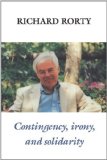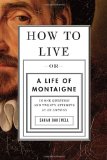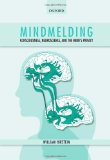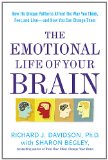Each month Amazon.com offers “100 Kindle books for $3.99 or less.” (As they say “not all deals are available in all territories” and “Amazon may modify the selection of books offered at any time,” so be sure to check the price before purchasing.) Here are some picks from this month’s offers:

Contingency, Irony, and Solidarity by Richard Rorty for $3.99
Book description from the publisher:
In this book, major American philosopher Richard Rorty argues that thinkers such as Nietzsche, Freud, and Wittgenstein have enabled societies to see themselves as historical contingencies, rather than as expressions of underlying, ahistorical human nature, or as realizations of suprahistorical goals. This ironic perspective on the human condition is valuable but it cannot advance Liberalism’s social and political goals. In fact, Rorty believes that it is literature and not philosophy that can do this, by promoting a genuine sense of human solidarity. Specifically, it is novelists such as Orwell and Nabokov who succeed in awakening us to the cruelty of particular social practices and individual attitudes. Thus, a truly liberal culture would fuse the private, individual freedom of the ironic, philosophical perspective with the public project of human solidarity as it is engendered through the insights and sensibilities of great writers. Rorty uses a wide range of references–from philosophy to social theory to literary criticism–to elucidate his beliefs.
 What Is Intelligence? by James R. Flynn for $3.99
What Is Intelligence? by James R. Flynn for $3.99
Book description from the publisher:
The ‘Flynn effect’ refers to the massive increase in IQ test scores over the course of the twentieth century. Does it mean that each generation is more intelligent than the last? Does it suggest how each of us can enhance our own intelligence? Professor Flynn is finally ready to give his own views. He asks what intelligence really is and gives a surprising and illuminating answer. This expanded paperback edition includes three important new essays. The first contrasts the art of writing cognitive history with the science of measuring intelligence and reports new data. The second outlines how we might get a complete theory of intelligence, and the third details Flynn’s reservations about Gardner’s theory of multiple intelligences. A fascinating and unique book that bridges the gulf separating our minds from those of our ancestors a century ago, and makes an important contribution to our understanding of human intelligence.

Your Brain on Food: How Chemicals Control Your Thoughts and Feelings by Gary Wenk for $1.99
Book description from the publisher:
Why is eating chocolate so pleasurable? Can the function of just one small group of chemicals really determine whether you are happy or sad? Does marijuana help to improve your memory in old age? Is it really best to drink coffee if you want to wake up and be alert? Why is a drug like PCP potentially lethal? Why does drinking alcohol make you drowsy? Do cigarettes help to relieve anxiety? What should you consume if you are having trouble staying in your chair and focusing enough to get your work done? Why do treatments for the common cold make us drowsy? Can eating less food preserve your brain? What are the possible side effects of pills that claim to make your smarter? Why is it so hard to stop smoking? Why did witches once believe that they could fly?
In this book, Gary Wenk demonstrates how, as a result of their effects on certain neurotransmitters concerned with behavior, everything we put into our bodies has very direct consequences for how we think, feel, and act. The chapters introduce each of the main neurotransmitters involved with behavior, discuss its role in the brain, present some background on how it is generally turned on and off, and explain ways to influence it through what we consume.

Don’t Be Such a Scientist: Talking Substance in an Age of Style by Randy Olson for $1.99
Book description from the publisher:
“You think too much! You mother F@$#%&* think too much! You’re nothing but an arrogant, pointy headed intellectual — I want you out of my classroom and off the premises in five minutes or I’m calling the police and having you arrested for trespassing.” —Hollywood acting teacher to Randy Olson, former-scientist
After nearly a decade on the defensive, the world of science is about to be restored to its rightful place. But is the American public really ready for science? And is the world of science ready for the American public?
Scientists wear ragged clothes, forget to comb their hair, and speak in a language that even they don’t understand. Or so people think. Most scientists don’t care how they are perceived, but in our media-dominated age, style points count.
Enter Randy Olson. Fifteen years ago, Olson bid farewell to the science world and shipped off to Hollywood ready to change the world. With films like Flock of Dodos: The Evolution-Intelligent Design Circus (Tribeca ’06, Showtime) and Sizzle: A Global Warming Comedy (Outfest ’08), he has tried to bridge the cultural divide that has too often left science on the outside looking in.
Now, in his first book, Olson, with a Harvard Ph.D. and formerly a tenured professor of marine biology at the University of New Hampshire, recounts the lessons from his own hilarious-and at times humiliating-evolution from science professor to Hollywood filmmaker. In Don’t Be Such a Scientist, he shares the secrets of talking substance in an age of style. The key, he argues, is to stay true to the facts while tapping into something more primordial, more irrational, and ultimately more human.
In a book enlivened by a profane acting teacher who made Olson realize that “nobody wants to watch you think,” he offers up serious insights and poignant stories. You’ll laugh, you may cry, and as a communicator you’ll certainly learn the importance of not only knowing how to fulfill, but also how to arouse.
Check out the whole list.

Also today’s “Kindle Daily Deal” (Friday March 2 only) is How to Live: Or A Life of Montaigne in One Question and Twenty Attempts at an Answer by Sarah Bakewell for $1.99.
Book description from the publisher:
Winner of the 2010 National Book Critics Circle Award for Biography
How to get along with people, how to deal with violence, how to adjust to losing someone you love—such questions arise in most people’s lives. They are all versions of a bigger question: how do you live? How do you do the good or honorable thing, while flourishing and feeling happy?
This question obsessed Renaissance writers, none more than Michel Eyquem de Monatigne, perhaps the first truly modern individual. A nobleman, public official and wine-grower, he wrote free-roaming explorations of his thought and experience, unlike anything written before. He called them “essays,” meaning “attempts” or “tries.” Into them, he put whatever was in his head: his tastes in wine and food, his childhood memories, the way his dog’s ears twitched when it was dreaming, as well as the appalling events of the religious civil wars raging around him. The Essays was an instant bestseller and, over four hundred years later, Montaigne’s honesty and charm still draw people to him. Readers come in search of companionship, wisdom and entertainment—and in search of themselves.
This book, a spirited and singular biography, relates the story of his life by way of the questions he posed and the answers he explored. It traces his bizarre upbringing, youthful career and sexual adventures, his travels, and his friendships with the scholar and poet Étienne de La Boétie and with his adopted “daughter,” Marie de Gournay. And we also meet his readers—who for centuries have found in Montaigne an inexhaustible source of answers to the haunting question, “how to live?”










